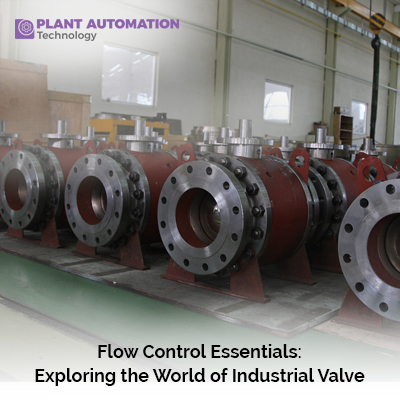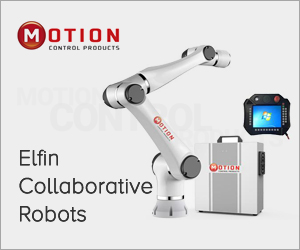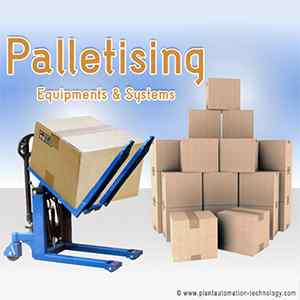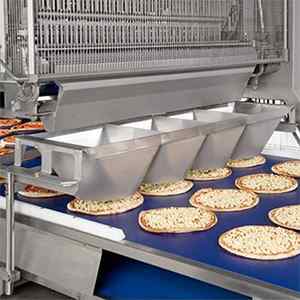Flow Control Essentials: Exploring the World of Industrial Valves

Introduction
In the fast-paced world of industrial processes, maintaining efficient flow control is essential for optimal performance. At the heart of this functionality lies a range of carefully designed valves, each serving a unique purpose. In our article, "Flow Control Essentials: Exploring the World of Industrial Valves," we delve into the intricacies of these critical components, providing an in-depth understanding of their importance and functionality.
From gate valves to globe valves, ball valves to butterfly valves, we unravel the diverse world of industrial valves, shedding light on their uses across various industries. Whether it's regulating fluid flow, isolating pipelines, or controlling pressure, these valves play a crucial role in ensuring smooth operations and preventing costly disruptions.
Join us as we explore the different types of valves, their applications, and key considerations when selecting the right valve for specific operations. Uncovering the secrets behind effective flow control, this article will empower professionals in engineering, manufacturing, and maintenance roles to make informed decisions that enhance efficiency, productivity, and safety.
Unlock the secrets of flow control and discover how industrial valves can optimize your processes in our comprehensive article.
Types of Industrial Valves
Industrial valves come in various types, each designed to serve specific purposes. Let's explore some of the most commonly used industrial valves:
1. Gate Valves
Gate valves are widely used in industrial applications due to their ability to control high flow rates and provide tight sealing. These valves feature a sliding gate that moves perpendicular to the flow, allowing for complete shut-off or unrestricted flow. This makes gate valves ideal for applications where a full flow or shut-off is required, such as in water treatment plants, oil and gas pipelines, and power generation facilities.
2. Globe Valves
Globe valves are versatile valves that provide excellent control over flow rates. These valves feature a movable disk that regulates the flow by either fully or partially obstructing the flow path. Globe valves are commonly used in industries that require precise control over fluid flow, such as pharmaceutical manufacturing, chemical processing, and HVAC systems.
3. Ball Valves
Ball valves are popular for their quick and reliable shut-off capability. These valves have a spherical ball with a hole in the center, which allows for precise control of the flow. By rotating the ball, the flow can be fully opened, fully closed, or adjusted to a specific flow rate. Ball valves are commonly used in applications that require frequent operation and tight shut-off, such as oil and gas refining, water treatment, and pneumatic systems.
4. Butterfly Valves
Butterfly valves are lightweight and cost-effective valves that provide efficient flow control. These valves feature a disc-shaped closure element that rotates within the valve body to regulate the flow. Butterfly valves are commonly used in large-scale applications, such as water distribution systems, wastewater treatment plants, and HVAC systems, due to their ability to handle high flow rates with minimal pressure drop.
5. Check Valves
Check valves, also known as non-return valves, are designed to allow flow in one direction and prevent backflow. These valves feature a hinged or spring-loaded disc that opens when the flow is in the desired direction and closes when the flow reverses. Check valves are commonly used in industries where backflow prevention is critical, such as water supply systems, sewage systems, and chemical processing plants.
Functions and Applications of Industrial Valves
Industrial valves serve a wide range of functions and find applications across various industries. Let's explore some of the key functions and applications of industrial valves:
1. Regulating Fluid Flow
One of the primary functions of industrial valves is to regulate fluid flow. By adjusting the valve's position, the flow rate can be increased, decreased, or completely shut off. This function is crucial in industries where precise control over fluid flow is necessary, such as in chemical processing, oil and gas refining, and water treatment.
2. Isolating Pipelines
Industrial valves are also used to isolate pipelines, allowing for maintenance, repairs, or replacement of equipment without disrupting the entire system. By closing the valve, the flow can be stopped in a specific section, enabling safe and efficient maintenance operations. This is particularly important in industries where downtime can result in significant financial losses, such as in power generation, manufacturing, and oil and gas industries.
3. Controlling Pressure
Industrial valves play a vital role in controlling pressure within a system. By adjusting the valve's position, the pressure can be increased or decreased to meet specific requirements. This function is crucial in industries that require precise pressure control, such as in chemical plants, pharmaceutical manufacturing, and steam systems.
4. Preventing Backflow
Check valves are specifically designed to prevent backflow, ensuring that the flow only moves in the desired direction. This function is critical in industries where backflow can cause contamination, equipment damage, or system failure. Check valves are commonly used in water supply systems, sewage systems, and chemical processing plants.
5. Ensuring Safety
Industrial valves play a crucial role in ensuring safety in various industrial processes. By providing reliable shut-off capabilities, these valves can prevent accidents, leaks, and other hazardous situations. Safety valves, in particular, are designed to release excess pressure from a system, protecting equipment and personnel from potential damage or harm.
Importance of Flow Control in Industrial Processes
Efficient flow control is paramount in industrial processes for several reasons. Let's explore the importance of flow control in various industries:
1. Enhanced Efficiency
Proper flow control ensures that the right amount of fluid is delivered at the right time, optimizing the overall efficiency of the system. By avoiding overflows, underflows, or uneven distribution, industries can maximize productivity and minimize waste. This is particularly crucial in industries where precise control over flow rates is necessary, such as in chemical processing, food and beverage production, and water treatment.
2. Improved Product Quality
In industries where product quality is paramount, maintaining precise flow control is essential. By ensuring consistent flow rates, industries can achieve uniform mixing, blending, or processing, resulting in high-quality products. This is particularly crucial in industries such as pharmaceutical manufacturing, food processing, and cosmetics production.
3. Cost Savings
Efficient flow control can lead to significant cost savings in terms of energy consumption, maintenance, and equipment lifespan. By optimizing flow rates and reducing pressure drops, industries can minimize energy usage, resulting in lower operational costs. Additionally, proper flow control reduces the strain on equipment, extending their lifespan and reducing maintenance and replacement costs.
4. Safety and Environmental Compliance
Flow control is crucial for maintaining safety and complying with environmental regulations. By ensuring proper pressure control, industries can prevent equipment failures, leaks, and other hazardous situations that can endanger personnel or the environment. Additionally, industries must comply with various regulations regarding flow control to minimize environmental impact and maintain the health and safety of both the workforce and the surrounding communities.
5. Process Optimization
Efficient flow control allows industries to optimize their processes, improving overall productivity and reducing operational inefficiencies. By analyzing flow rates, pressure drops, and other related factors, industries can identify areas for improvement and implement strategies to enhance performance. This can lead to streamlined operations, reduced downtime, and increased profitability.
Factors to Consider When Selecting Industrial Valves
Selecting the right industrial valve for specific operations requires careful consideration of various factors. Let's explore some key factors to keep in mind when choosing industrial valves:
1. Flow Rate and Pressure Requirements
Understanding the required flow rate and pressure range is essential for selecting the appropriate valve. Different valves have different flow capacities and pressure ratings, and choosing a valve that can handle the desired flow and pressure is crucial for optimal performance and longevity.
2. Fluid Compatibility
Considering the fluid's compatibility with the valve materials is vital to prevent corrosion, erosion, or other forms of damage. Different fluids require different valve materials, and selecting a valve that is compatible with the specific fluid being controlled is essential for long-term reliability.
3. Temperature and Pressure Conditions
Accounting for the temperature and pressure conditions in the operating environment is crucial for valve selection. Some valves are designed to withstand high temperatures and pressures, while others may be suitable for lower temperature and pressure ranges. Choosing a valve that can handle the specific operating conditions ensures safe and efficient operation.
4. Valve Size and Connection Type
Selecting the appropriate valve size and connection type is essential for seamless integration into the existing system. The valve size should match the pipe's diameter, and the connection type should be compatible with the existing piping system to ensure proper installation and functionality.
5. Maintenance and Reliability
Considering the maintenance requirements and reliability of the valve is crucial for long-term cost-effectiveness. Valves that require frequent maintenance or have a history of reliability issues can result in increased downtime and higher operational costs. Choosing valves from reputable manufacturers known for their reliability and providing easy maintenance can enhance efficiency and reduce maintenance costs.
Common Challenges in Valve Selection and Maintenance
Valve selection and maintenance can pose various challenges for industries. Let's explore some common challenges and how to overcome them:
1. Limited Technical Knowledge
Many industries face the challenge of limited technical knowledge when it comes to valve selection and maintenance. To overcome this, it is essential to invest in training programs or consult with experts who can provide guidance and recommendations based on specific operational requirements.
2. Compatibility Issues
Ensuring compatibility between valves and existing systems can be a challenge, especially when dealing with older infrastructure or systems with unique specifications. Thoroughly understanding the system requirements and consulting with valve experts can help identify compatible options and prevent compatibility issues.
3. Cost Considerations
Valve selection often involves cost considerations, as industries strive to balance performance and reliability with budget constraints. While cost is an important factor, it is crucial to prioritize long-term cost-effectiveness and reliability over short-term savings. Investing in high-quality valves from reputable manufacturers may result in lower maintenance costs and longer lifespan, ultimately providing better value for money.
4. Maintenance and Replacement
Maintenance and replacement of valves can be challenging, especially in industries where downtime is costly. Implementing proactive maintenance strategies, such as regular inspections, preventive maintenance, and spare parts inventory management, can help minimize downtime and ensure smooth operations.
5. Compliance with Standards and Regulations
Industries must comply with various standards and regulations regarding valve selection, installation, and maintenance. Staying updated with the latest industry standards and regulations, and working with reputable suppliers who provide valves that meet these requirements, is crucial for compliance and overall safety.
Industry Standards and Regulations for Industrial Valves
Industrial valves must adhere to specific standards and regulations to ensure safety, reliability, and compliance. Let's explore some of the common standards and regulations governing industrial valves:
1. API Standards
The American Petroleum Institute (API) sets standards for various aspects of the oil and gas industry, including valve design, materials, and testing. API standards, such as API 600 for gate valves and API 609 for butterfly valves, ensure consistent quality and performance across the industry.
2. ASME Standards
The American Society of Mechanical Engineers (ASME) sets standards for industrial valves used in various applications. ASME standards, such as ASME B16.34 for valve design and ASME B16.10 for face-to-face dimensions, provide guidelines for valve manufacturers and help ensure compatibility and reliability.
3. ISO Standards
The International Organization for Standardization (ISO) provides international standards for industrial valves, covering aspects such as design, testing, and quality management systems. ISO standards, such as ISO 9001 for quality management systems and ISO 5208 for valve testing, help ensure consistent quality and performance on a global scale.
4. Occupational Safety and Health Administration (OSHA) Regulations
OSHA regulations include requirements for valve safety and maintenance in various industries. These regulations aim to protect workers and ensure safe working conditions. Compliance with OSHA regulations is essential to maintain a safe and healthy workplace environment.
5. Environmental Regulations
Industries must comply with environmental regulations governing valve emissions, leakage, and disposal. Regulations such as the Clean Air Act and the Clean Water Act impose strict guidelines to minimize environmental impact. Compliance with these regulations is crucial to avoid penalties and maintain environmental sustainability.
Innovations in Industrial Valve Technology
Industrial valve technology continues to evolve, incorporating innovative features to enhance performance, efficiency, and reliability. Let's explore some of the recent innovations in industrial valve technology:
1. Smart Valve Technology
Smart valve technology integrates sensors, actuators, and control systems to enable real-time monitoring and control of valve operations. This technology allows for remote monitoring, predictive maintenance, and improved efficiency in industrial processes. By providing real-time data and insights, smart valve technology enhances decision-making and optimization of flow control.
2. Valve Positioners
Valve positioners are devices that precisely control the position of the valve, ensuring accurate flow control. These devices use sensors and feedback mechanisms to adjust the valve's position based on the desired flow rate or pressure. Valve positioners enhance the accuracy and responsiveness of industrial valves, improving overall process efficiency.
3. Anti-Cavitation Valves
Cavitation refers to the formation and collapse of vapor bubbles in a flowing liquid, which can cause damage to valves and other equipment. Anti-cavitation valves are designed to prevent cavitation by controlling the flow velocity and pressure drop. These valves help protect equipment, reduce noise, and enhance the overall lifespan of the system.
4. Low-Leakage Valves
Low-leakage valves are designed to minimize fluid leakage when the valve is closed, ensuring tight shut-off and preventing wastage. These valves use advanced sealing technologies and materials to achieve low leakage rates, improving efficiency and reducing environmental impact. Low-leakage valves are particularly important in industries where product quality, safety, and environmental compliance are crucial.
5. Remote Valve Control Systems
Remote valve control systems enable operators to control valve operations from a centralized location, eliminating the need for physical presence near the valves. This technology enhances safety, improves operational efficiency, and enables quick response to changing process conditions. Remote valve control systems are particularly beneficial in industries with large-scale operations or hazardous environments.
In the industrial sector, having reliable and efficient valves is essential for smooth operations. If you're looking for the top manufacturers and suppliers of industrial valves, you've come to the right place. In this article, we will explore the leading companies in the industry, providing you with valuable insights into their products and services.
Top Manufacturers and Suppliers of Industrial Valves
Importance of choosing the right valve manufacturer and supplier
Choosing the right valve manufacturer and supplier is crucial for any industrial operation. The performance and durability of valves directly impact the efficiency and safety of the entire system. By partnering with reputable manufacturers and suppliers, you can ensure that you're getting high-quality valves that meet your specific requirements.
One of the key benefits of working with top manufacturers and suppliers is their expertise in the industry. These companies have years of experience and in-depth knowledge of different valve types and applications. They understand the unique demands of each sector, whether it's chemical, oil and gas, power generation, or manufacturing, and can provide tailored solutions to meet those needs.
Another important factor to consider is the quality of the valves. Top manufacturers prioritize quality control and adhere to stringent standards to ensure that their products are reliable, durable, and safe. By choosing reputable manufacturers, you can have peace of mind knowing that you're investing in valves that will perform optimally and withstand the demands of your operation.
When it comes to suppliers, the right partner can make a significant difference in your overall experience. Reliable suppliers not only offer a wide range of valve options but also provide excellent customer service and support. They understand the urgency of your needs and can ensure timely delivery of valves, minimizing downtime and maximizing productivity.
Factors to consider when selecting industrial valve manufacturers and suppliers
When selecting industrial valve manufacturers and suppliers, there are several factors to consider to make an informed decision. These factors will help you assess the capabilities and suitability of potential partners for your specific requirements. Here are some key considerations:
1. Industry experience and reputation: Look for manufacturers and suppliers with a strong track record in the industry. Consider their years of experience, client testimonials, and reputation in the market. A company with a proven history of delivering high-quality valves and excellent service is more likely to meet your expectations.
2. Product range and customization: Evaluate the range of valves offered by manufacturers. Do they have the specific types of valves you need? Can they customize valves to fit your unique requirements? Look for manufacturers that offer a wide selection of valve types and have the flexibility to tailor their products to your needs.
3. Quality control and certifications: Ensure that the manufacturers you're considering have robust quality control processes in place. Look for certifications such as ISO 9001, API, and ASME that demonstrate their commitment to quality and adherence to industry standards. This will give you confidence in the reliability and safety of their valves.
4. Technical expertise and innovation: Consider the technical expertise and innovation capabilities of manufacturers. Do they have a dedicated team of engineers and technicians? Are they investing in research and development to improve their products? Working with manufacturers that stay at the forefront of technology ensures that you're getting the most advanced and efficient valves.
5. Supplier network and logistics: Assess the supplier network and logistics capabilities of potential partners. Can they reliably deliver valves to your location? Do they have a wide distribution network? Look for suppliers that have efficient logistics processes to minimize lead times and ensure timely delivery of valves.
By carefully evaluating these factors, you can select manufacturers and suppliers that align with your requirements and can provide the best solutions for your industrial valve needs.
When choosing a valve supplier, it's essential to consider factors such as product availability, pricing, customer support, and logistics capabilities. A reliable supplier will not only provide you with the right valves but also ensure a smooth and hassle-free procurement experience.
Now let's explore the services and support offered by valve suppliers.
Services and support offered by valve suppliers
Valve suppliers play a crucial role in ensuring a seamless procurement process and providing ongoing support to their customers. Here are some services and support you can expect from reputable valve suppliers:
1. Technical assistance: Reliable suppliers have a team of experts who can provide technical assistance throughout the valve selection and sizing process. They can help you determine the most suitable valve type, size, and material for your application. This ensures that you get valves that meet your specific requirements and optimize system performance.
2. Customization capabilities: Some valve suppliers offer customization services to tailor valves to your unique needs. Whether it's modifying valve dimensions, and materials, or adding specific features, they can work closely with manufacturers to provide customized solutions.
This ensures that you get valves that perfectly fit your application and maximize efficiency.
3. Inventory management: Reputable suppliers understand the importance of inventory management and can help you optimize your valve inventory. They can provide valuable insights into usage patterns, recommend inventory levels, and offer just-in-time delivery options. This minimizes inventory holding costs and ensures that you always have the right valves when you need them.
4. After-sales support: Top valve suppliers prioritize customer satisfaction and provide excellent after-sales support. Whether it's troubleshooting valve performance issues or arranging repairs and maintenance, they are dedicated to resolving any concerns promptly. This ensures that your valves continue to perform optimally throughout their service life.
Conclusion: Making the right choice for your industrial valve needs
Choosing the right manufacturers and suppliers of industrial valves is crucial for the success of your operations. By considering factors such as industry experience, product range, quality control, technical expertise, supplier network, and customer support, you can make informed decisions. Top manufacturers offer a wide range of valve types and prioritize quality, performance, and customer satisfaction. Reliable suppliers provide a seamless procurement experience, technical assistance, customization options, and ongoing support.
By partnering with the right manufacturers and suppliers, you can ensure that you're getting high-quality valves that meet your specific requirements and contribute to the smooth and efficient functioning of your industrial systems.







